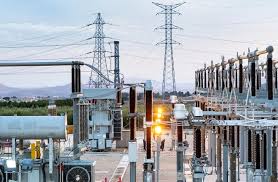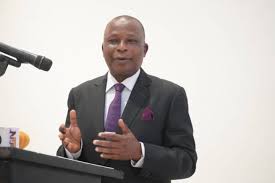Business
Smuggled Rice Tops Seized Items List In 2025
Nigeria Customs Service (NCS) has announced that seizures made on smuggled rice topped the most seized items in the first quarter of 2025.
Comptroller-General of Customs, Adewale Adeniyi, disclosed this and other achievements during a press briefing held recently at the NCS headquarters in Abuja.
He said, “Rice remained the most prevalent seized commodity, with 159 cases involving 135,474 bags valued at ¦ 939,309,698.00. Petroleum products followed with 61 seizures totaling 65,819 liters, valued ¦ 43,336,160.81 DPV.
“Of particular note were 22 narcotics interceptions valued at ¦ 730,748,173.00, reflecting our intensified focus on combating drug trafficking”.
The service, he noted, also recorded “three high-value wildlife product seizures with a remarkable ¦ 5,653,522,600.00 DPV, underscoring both the lucrative nature of this illegal trade and our commitment to environmental protection under international conventions”.
The Customs boss further disclosed a robust performance for the first quarter of 2025, exceeding its revenue target and recording significant gains in anti-smuggling operations and trade facilitation.
Speaking on the revenue collection surpassed target, Adeniyi said the NCS collected ¦ 1.75 trillion in revenue for Q1 2025, surpassing its quarterly benchmark of ¦ 1.65 trillion by ¦ 106.5 billion and achieving 106.47 percent of its projection.
According to him, this marks a 29.96 percent increase compared to the same period in 2024, when the service collected ¦ 1.35 trillion.
Month-by-month analysis showed January collections up 65.77 percent year-on-year, with February and March also exceeding targets and 2024 figures.
On anti-smuggling efforts yield results, he said the Customs officers made 298 seizures in Q1 2025, with a total Duty Paid Value (DPV) of ¦ 7.7 billion—a 78.41 percent increase from Q4 2024.
However, this figure represents a 19.7 percent decrease compared to Q1 2024, attributed to improved compliance and the deterrent effect of enforcement.
According to the CGC, the seisures includes 135,474 bags of rice, petroleum products, narcotics, wildlife products, textiles, retreaded tires, and pharmaceuticals.
Speaking on trade facilitation and modernisation, he stated that the Customs top brass affirmed that NCS processed 327,928 import transactions in Q1 2025, which is up 5.28 percent from the previous year, and handled goods with a CIF value of ¦ 14.8 trillion, showing an increase of 26.72 percent.
Meanwhile, export shipments declined in number but rose sharply in mass, reflecting a shift toward bulk commodity exports and improved processing efficiency.
The total trade value managed by the NCS reached ¦ 36.3 trillion for the quarter.
Key modernisation initiatives included the expansion of the B’Odogwu Customs clearance platform and the launch of the Authorised Economic Operators (AEO) programme, aimed at rewarding compliant businesses with faster processing.
The NCS also rolled out its “Customs Cares” corporate social responsibility programme, supporting education, health, and food security across Nigeria.
Speaking on the challenges, the Comptroller General of Customs, stressed that “The NCS faced challenges from exchange rate volatility, policy changes, and evolving smuggling tactics.
“Exchange rates fluctuated 62 times during the quarter, creating uncertainty for importers. The agency also navigated the suspension of the Financial Customs Service Operation and new tariffs on Nigerian exports to the United States.
“Looking ahead, the NCS aims to accelerate modernisation, expand digital platforms, and enhance service delivery, aligning with the federal government’s broader economic and trade reforms”.
Adeniyi reaffirmed the agency’s commitment to transparency, stakeholder engagement, and continued contributions to national revenue and security.
Nkpemenyie Mcdominic, Lagos
Business
Abia Takes Over Electricity Supply In 8 LGAs

Business
‘Gas Shortages, Infrastructure Deficiency, Bane Of Power Sector Growth’

Business
NUPRC Blames Out Service Trunk Lines On Vandalism … As Rivers NUJ Promises Development Journalism

-

 News5 days ago
News5 days agoCrisis Brews in Amadi-Ama Community Over CDC
-

 Oil & Energy5 days ago
Oil & Energy5 days agoOil Sector Slowdown’ll Threaten 2025 Budget Execution – NESG
-

 Sports5 days ago
Sports5 days agoWhy I Chose Arsenal – Goykeres
-

 Politics5 days ago
Politics5 days agoLG Autonomy: AGF Asks S’Court To Order Seven Months Allocations Refund For Osun LGAs
-

 News5 days ago
News5 days agoIbas Reaffirms Commitment To Quality Education In Rivers
-

 Niger Delta5 days ago
Niger Delta5 days agoIGP Lauds Diri For Honouring Police Officer
-

 News5 days ago
News5 days agoPTA Backs 12-Year Entry Age For Secondary School
-

 Oil & Energy5 days ago
Oil & Energy5 days agoTinubu Backs N4trn Bond To Resolve Power Sector Liabilities


